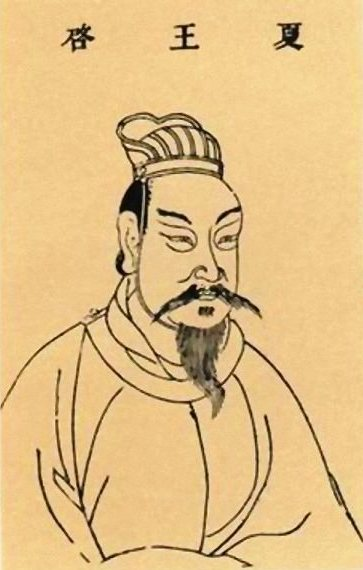 Information about this royal house comes from the Bamboo Annals and Shiji. This ancient book was written by a eunuch Sima Qian and is sometimes translated as "Records of the Grand Historian."
Information about this royal house comes from the Bamboo Annals and Shiji. This ancient book was written by a eunuch Sima Qian and is sometimes translated as "Records of the Grand Historian."The Xia Dynasty was the first known dynasty in the Chinese history. Xia is pronounced as "Syah."
 Information about this royal house comes from the Bamboo Annals and Shiji. This ancient book was written by a eunuch Sima Qian and is sometimes translated as "Records of the Grand Historian."
Information about this royal house comes from the Bamboo Annals and Shiji. This ancient book was written by a eunuch Sima Qian and is sometimes translated as "Records of the Grand Historian."

According to the both sources, the first king of Xia was Yu the Great (Da Yu). He was a descendant of the Yellow Emperor, a semi-mythical culture hero. During Yu's reign, the Great Flood happened. It was Yu who first built canals and ruled well.
Because of his virtues, Yu was called "the Great." It was rare in Chinese history to call kings "the great." Yu and his Queen Nu Jiao had a son named Qi, who was the second king of Xia.
One of the early Xia royal consorts was Queen Ji. Another was one northern princess — daughter of one Chinese chief.
After Qi, several kings have ruled until Máng. He was a father of King Xie [Syeh], who was quite famous. He fought with barbarians and had two sons; one of them was Jiong.

Jiōng ruled after Xie. His son was famous King Jin [Chin]. Jin, whose name means "shack", was also called "Yin Jia." He is called "Jin" by Sima Qian, who wrote that "Emperor Chin [Jin]" came to power after his father. The Bamboo Annals calls him "Yin Jia" and records an ancient legend about his death.
It was written that during the reign of Jin, several suns appeared in the sky and China was in the great draught. Jin died during the draught.
Later ruled Gāo and his son Fa, during whose reign an earthquake happened. Fa's son was Jie, the last monarch of Xia.
Jie (Chie) was a very bad king. He did not ruled as well as his grandfather or ancestor Yu. Jie had three wives; two were sisters, the daughters of one chief, and the third of them was lovely Queen Mo Xi [Moh See]. She was very beautiful and evil, because she ordered making of a wine lake in Jie's palace. Taxes were very high, because Jie wanted pleasures.
Because of Jie's bad rule, one noble and virtuous man overthrow the Xia Dynasty and became King Tang of Shang.
Valentino Križanić (Walenikino)